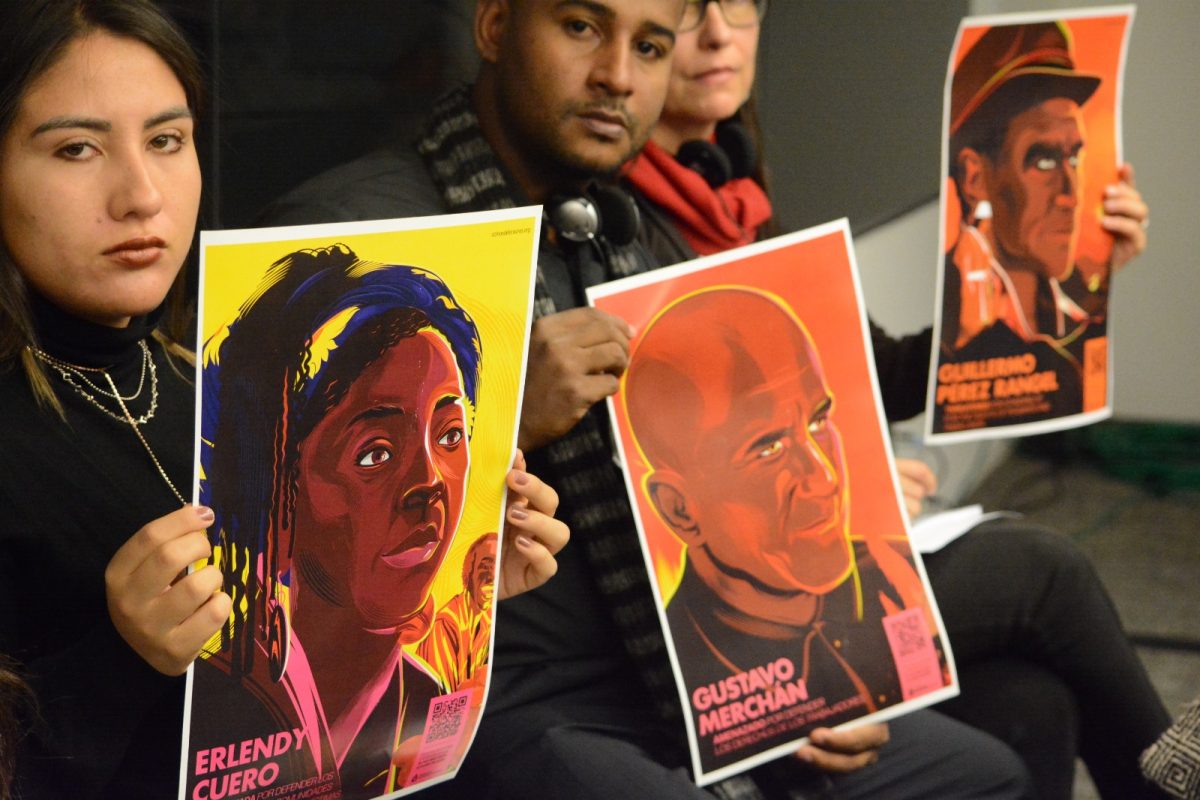






Washington, D.C. – December 6th, 2018: Human rights organizations denounced today, before the Inter-American Commission on Human Rights (IACHR), the prevailing impunity in relation to the high rates of threats, harassment and deaths of human rights defenders in Colombia. Just this past weekend, three indigenous leaders of the Awá people of the Camawari organization were killed.
“Since August 23rd, when the Plan for Timely Action was signed in cases of defenders, from the Duque government, there have been 67 murders of defenders, and approximately 360 since the signing of the Final Peace Agreement. The reality of the situation is very dramatic,” said Diana Sánchez of the MINGA Association and the Somos Defensores Program.
During their presentation, the petitioners indicated that between January and September 2018, the Somos Defensores Program registered a total of 109 homicides and 359 threats against human rights defenders.
Faced with this alarming situation, the Office of the Attorney General of the Nation has publicly insisted that there is an explanation of 51.8% of the murders of defenders. However, this figure only refers to homicides that occurred between 2016 and 2018, which does not address that most of the attacks continue in impunity and does not consider other types of human rights violations against defenders.
Beyond the figures, there is also a lack of transparency about what comprises an enlightened fact or the investigative activity carried out in the face of threats, attacks, or other aggressions against defenders. On the other hand, a differentiated analysis with a gender perspective on attacks and sexual violence that affects women defenders is not offered either.
“A society that does not protect its social leaders has very little chance of consolidating itself as a democracy. The important thing is to implement effective protection policy, therefore there must be a dialogue between the State and civil society,” said Marco Romero, of the Consultancy for Human Rights and Displacement (CODHES).
Despite this, the public policies announced by the new government have not been agreed upon with civil society organizations or widely spread. In response to this, the organizations once again urged state representatives to implement a comprehensive response that articulates prevention, protection, and investigation efforts to stop stigmatization by the State against people who defend human rights in Colombia.
“Another risk factor for defenders in Colombia has been the tendency of denial from the State: To say that there is no paramilitarism, that there is no systemicity, hinders the advance of justice,” said Jomary Ortegón del Cajar, who insisted on the urgency to convene the National Guarantees Roundtable, a space for dialogue between the State and civil society organizations in Colombia.
“Addressing the impunity that fuels crimes against defenders will be key in guaranteeing effective protection and promotion of the work of this demographic,” said Viviana Krsticevic, Executive Director of the Center for Justice and International Law (CEJIL). “On the 20th anniversary of the Declaration of the United Nations and a few days before the International Day of Human Rights, we demand that the Colombian State immediately report to the people who work to strengthen the country.”
Comisión Colombiana de Juristas (CCJ) / Colectivo de Abogados José Alvear Restrepo (CAJAR) / Colectivo Orlando Fals Borda / Corporación Humanas Colombia / Corporación Yira Castro / Corporación Jurídica Libertad / Corporación Reiniciar / Consultoría para los Derechos Humanos y el Desplazamiento (CODHES) / Comité de Solidaridad con Presos Políticos (CSPP) / Centro por la Justicia y el Derecho Internacional (CEJIL) / Grupo Interdisciplinario (GIDH) / Humanidad Vigente Corporación Jurídica (HVCJ) / Programa No Gubernamental de Protección a Defensores de DD.HH en Colombia, Programa Somos Defensores / Sisma Mujer / Asociación MINGA
Help us continue this critical and urgent work with a donation!
DONATE NOW